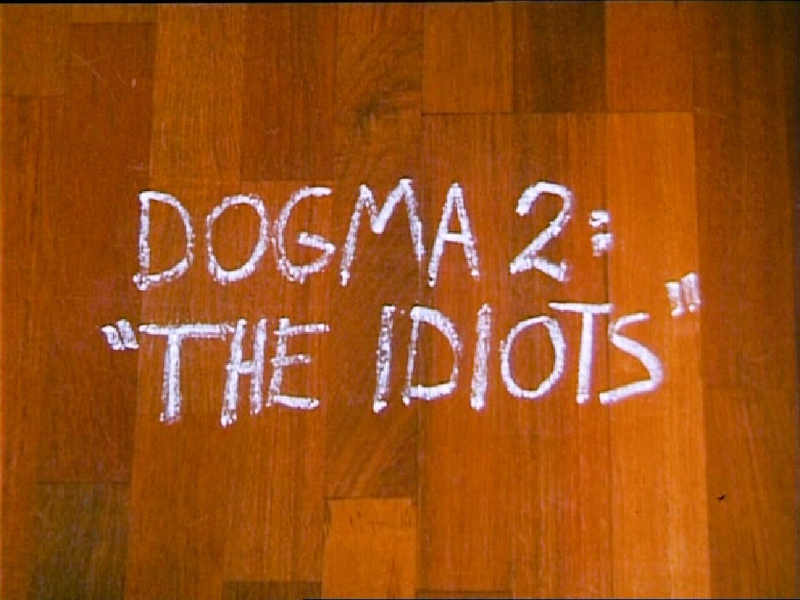Director – Lars von Trier – 1998 – Denmark – Cert. 18 – 117m
*****
A woman joins a community of free-spirited, self-designated ‘spassers’ – people who pretend to be mentally handicapped in order to free their ‘inner idiot’ – back out in UK cinemas on Friday, Aug 18th
NSFW
After he had wowed the film world with Breaking The Waves (1996), von Trier in company with fellow Danish director Thomas Vinterberg set out the film making manifesto Dogme 95 and an accompanying ‘vow of chastity’ in an attempt to throw off the constraints and limitations with which conventional, commercial film production had become encumbered. The manifesto itself was a set of rules, or, if you will, constraints, aimed at freeing up filmmaking practice for the purposes of creativity. These included the direct recording of sound, shooting only in the Academy 35mm format, no set building or augmenting sound or image in post-production but only using locations, and no director’s credit. The vow of chastity eschewed good taste along with the idea of the ‘artist’ and their ‘work’ in favour of “forcing the truth out of characters”.
Some 35 films were shot and ratified under this manifesto between 1998 and 2005. The Idiots was the second, following Vinterberg’s Festen / The Celebration (1998). Rules are made to be broken, and how far the film makers involved adhered to the finer points of the manifesto is a moot point, but there’s no denying it injected a breath of fresh air into film culture at the time and has had a profound effect going forward. The manifesto was to some extent inspired by Breaking The Waves, although the earlier film breaks a number of Dogme 95 rules.
Obviously, one could simply approach The Idiots without considering any of this context. But once one has become aware of the context, ignoring it would be a mistake.
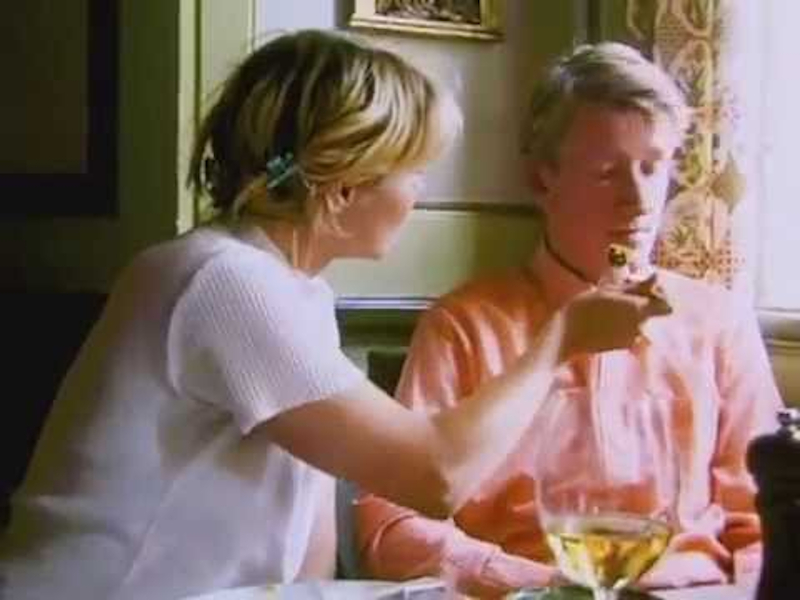
The middle of Summer. Restaurant customer Karen (Bodil Jørgensen), struggling with the high cost of menu prices as she orders, finds herself the unexpected centre of attention when a group of special needs residents from a local care home appear and, to the horror of both their minder Susanne (Anne Louise Hassing) and the restaurant’s maître d’, start breaking social boundaries left, right and centre. One of them, Stoffer, short for Christoffer (Jens Albinus), takes her hand and won’t let it go and Karen, with a degree of complicity, allows herself to be dragged into a car belonging to the home.
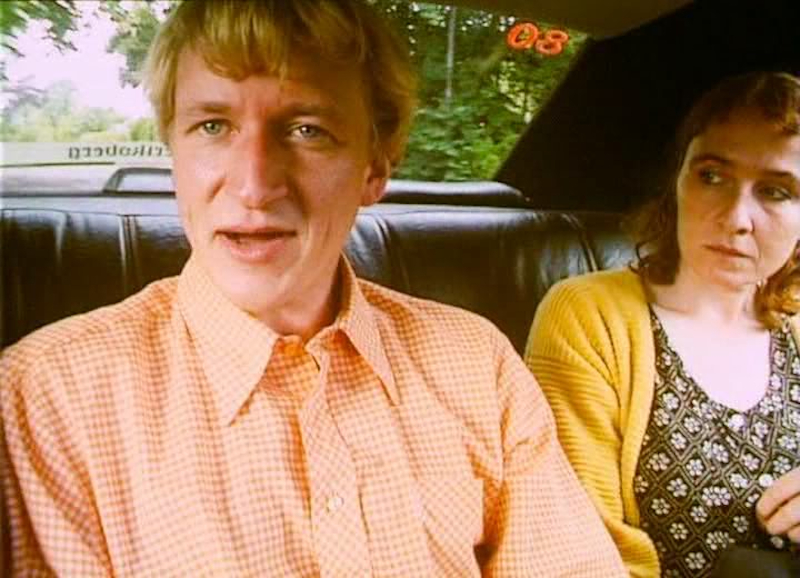
Thus, she is taken to the home only to discover that these special needs residents are not, in fact, special needs residents at all, but ordinary people living in a community where they practice ‘spassing’, not because that’s how they are and behave, but as an exercise or (in)discipline intended to help them make contact with their ‘inner idiot’.
In Karen’s time at the home, she observes various visitors and goings on. There’s a visit to a local factory, where the spassers give all the wrong answers to a product promotion presentation and one of them nearly vandalises the car park by reversing the community van (“the lack of responsibility does them good,” explains their ‘minder’). Back at the house, Jeppe (Nikolaj Lie Kaas) is accused of not doing anything in his spassing.
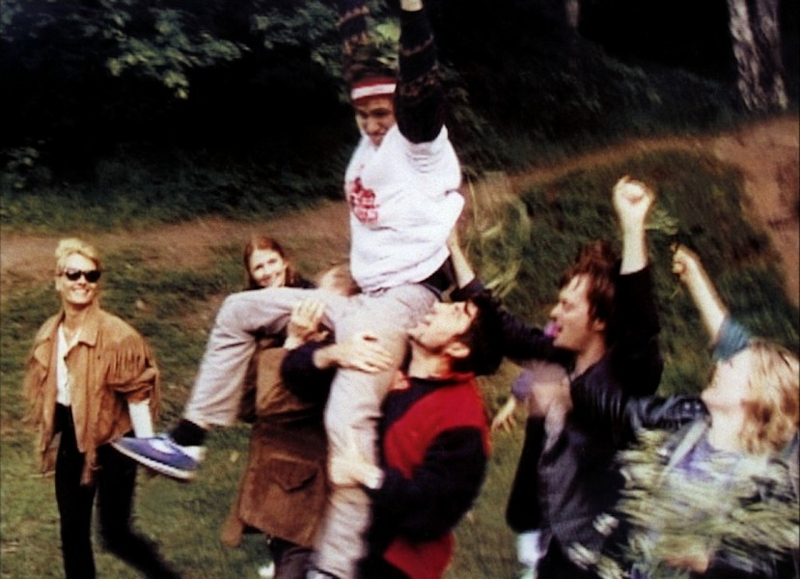
Meanwhile, another spasser, Axel (Knud Romer Jørgensen), is visited by Katrine (Anne-Grethe Bjarup Riis) who is similarly accused, in her case, of rejoining the group so as to get Axel back after he left home. The group mess around on a ski practice slope, they knock on doors selling Christmas decorations at exorbitant prices (“and 5p,” hilariously and insistently adds one spasser in the subtitled translation). In a pub, Jeppe ends up having bystanders help him urinate by holding his member and pointing it in the direction of the urinal in the Gents.
Stoffer is supposed to be minding the property for a relative until its sold, and must deal not only with the relative when he visits but also potential buyers, doing everything he can to make sure the house doesn’t sell. There’s also an encounter with a man from the council (Michael Moritzen). And later, at Stoffer’s suggestion, a birthday gang bang (be warned: this group sex scene features non-simulated, multiple genital penetrations). If that could be accused of leaning towards the juvenile and / or gratuitous, the final scene in which Karen, accompanied by ‘her minder’ Susanne, goes home to her family is something else.

First, as a foretaste, the quiet, introverted Josephine (Louise Mieritz) is forced to leave the community against her wishes by her disciplinarian father (Anders Hove). Her romantic interest Henrik (Troels Lyby) is distraught.
Karen has been happy in the community, the freewheeling atmosphere at which contrasts heavily with the stifling, buttoned-down conventionality of her family home. She spasses at the meal table, food slowly dribbling from her mouth. It’s a brave gesture against her pre-community life. Her husband Anders (Anders Hove) is outraged by her spassing and slaps her face violently. Susanne gently says “that’s enough, and leads Karen towards the door.
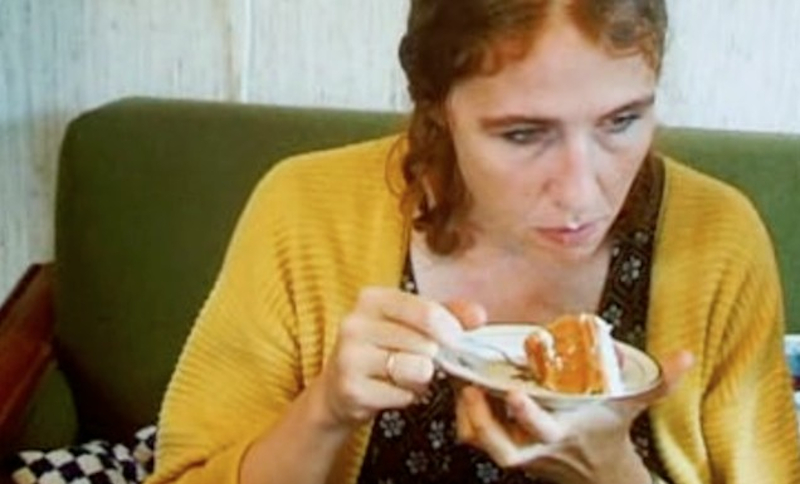
To some extent, von Trier has thought long and hard about the Dogme 95 manifesto and thought up a scenario to fit it. There are times when the film feels a little too rough around the edges (in a way that none of his others films do), yet at the same time there’s no denying that by forcing himself to work within the prescribed parameters, he comes up with something fresh and original which probably couldn’t have been arrived at in any other way. And perhaps it helped him make later films as a useful yardstick of process to measure them against. (Although he’s supposed to be erasing himself as a ‘director’ making a ‘work’ here, remember?)
Watching the film is a peculiar, singular experience. Much of it is very funny, yet one or two scenes towards the end prove utterly devastating. It’s not really like anything else and is a film that you might well want to return to later wither as part of the larger body of the director’s work As per the manifesto, the film feels very much in and of the moment as you watch it, without an auteur or for that matter a committee from a Studio trying to impose a vision or a conventional homogeneity upon it.
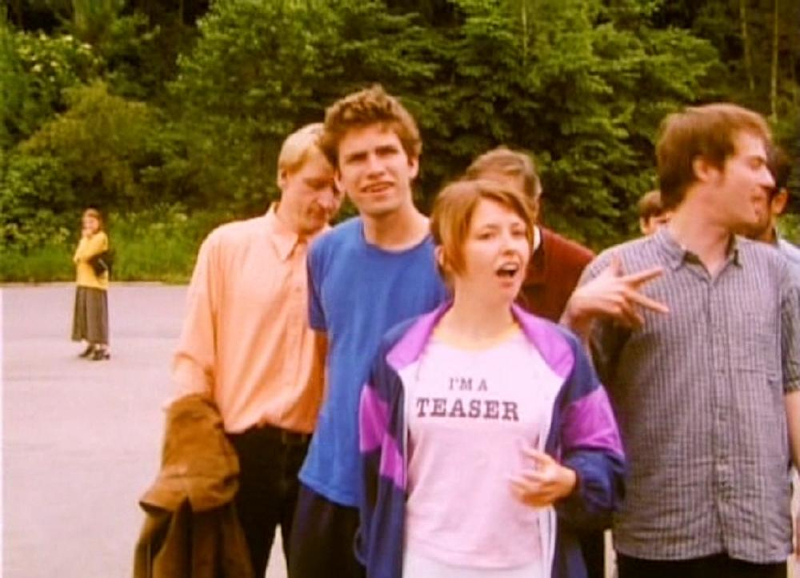
Mentally disabled people and others might be less than happy abut the whole ‘spassing’ conceit, suggesting that there’s something noble about feigning a condition with which some people have to live without any choice. There is one scene in which real life special needs people interact with the main cast, and you neither feel they are being exploited nor that they’re not enjoying themselves. And seen within the wider body of von Trier’s work, he has made a number of films about mental illness (which is not quite the same thing as mental disability). He also used a couple of mentally disabled actors as the chorus (employed as dishwashers in the kitchen) in his haunted hospital TV soap The Kingdom (1994-).
There’s a whole other question about whether you think it’s acceptable to have improvising actors engaging in actual sex on set. Were any of them coerced into or unhappy about it? (Watching it, they all appear to be having a pretty enjoyable time. But, who knows? According to von Trier, the penetrative sex close-ups were executed by porn actors rather than the more visible cast members.) And did the irony of a group sex scene in a film where the director has made a vow of chastity escape everyone’s notice?
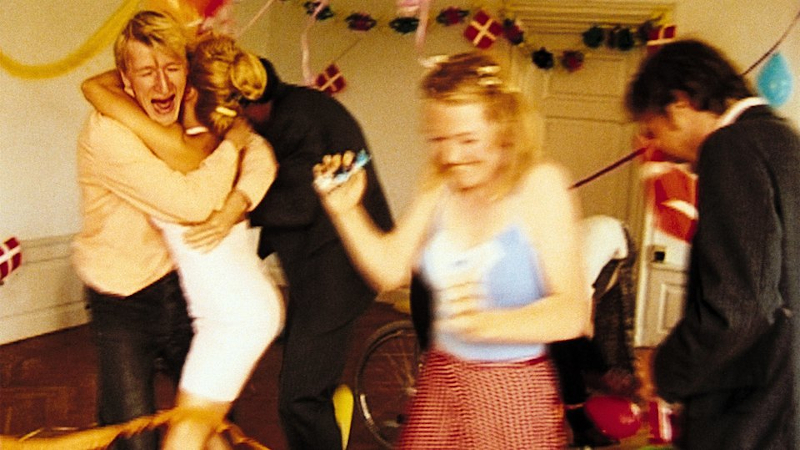
Moreover, it’s not hard to read this as a metaphor for von Trier’s filmmaking practice and / or the Dogme 95 provocation – sometimes gratuitously pushing the limits of acceptability and enjoying himself in the process, sometimes trying to say something significant about the world and society around him. But is ‘getting in touch with your inner idiot’ a good thing or simply someone misbehaving very badly? Certainly, I’d rather see a film like this than any number of pointless and predictable Hollywood blockbusters made in either 1998 or today (arguably, not much has changed and we could do with someone else shaking things up like this).
You may not come away from it thinking you’ve seen anything quite as incredible as the film or performances in Breaking The Waves or Melancholia (2011). Still, the group of non-star actors give it their all and help contribute to something very special. Von Trier writes, directs and shoots the film himself (so no Director of Photography to decide on how the film might look.) And yet there’s still something about The Idiots, and particularly its closing scene, that stays with you long afterwards. It remains one of the stronger Dogme 95 entries – arguably and ironically because it has been made by a name director.
The Idiots is back out in cinemas in a 4K restoration in the UK on Friday, Aug 18th as part of the season: Enduring Provocations: The Films Of Lars Von Trier.
Trailer (Enduring Provocations: The Films Of Lars Von Trier):
